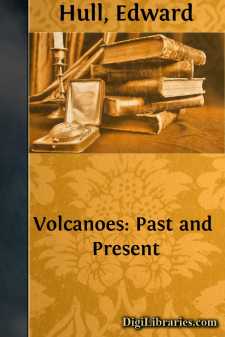Categories
- Antiques & Collectibles 13
- Architecture 36
- Art 48
- Bibles 22
- Biography & Autobiography 813
- Body, Mind & Spirit 142
- Business & Economics 28
- Children's Books 14
- Children's Fiction 11
- Computers 4
- Cooking 94
- Crafts & Hobbies 4
- Drama 346
- Education 46
- Family & Relationships 57
- Fiction 11829
- Games 19
- Gardening 17
- Health & Fitness 34
- History 1377
- House & Home 1
- Humor 147
- Juvenile Fiction 1873
- Juvenile Nonfiction 202
- Language Arts & Disciplines 88
- Law 16
- Literary Collections 686
- Literary Criticism 179
- Mathematics 13
- Medical 41
- Music 40
- Nature 179
- Non-Classifiable 1768
- Performing Arts 7
- Periodicals 1453
- Philosophy 64
- Photography 2
- Poetry 896
- Political Science 203
- Psychology 42
- Reference 154
- Religion 513
- Science 126
- Self-Help 84
- Social Science 81
- Sports & Recreation 34
- Study Aids 3
- Technology & Engineering 59
- Transportation 23
- Travel 463
- True Crime 29
Volcanoes: Past and Present
by: Edward Hull
Description:
Excerpt
CHAPTER I.
HISTORIC NOTICES OF VOLCANIC ACTION.
There are no manifestations of the forces of Nature more calculated to inspire us with feelings of awe and admiration than volcanic eruptions preceded or accompanied, as they generally are, by earthquake shocks. Few agents have been so destructive in their effects; and to the real dangers which follow such terrestrial convulsions are to be added the feelings of uncertainty and revulsion which arise from the fact that the earth upon which we tread, and which we have been accustomed to regard as the emblem of stability, may become at any moment the agent of our destruction. It is, therefore, not surprising that the ancient Greeks, who, as well as the Romans, were close observers of the phenomena of Nature, should have investigated the causes of terrestrial disturbances, and should have come to some conclusions upon them in accordance with the light they possessed. These terrible forces presented to the Greeks, who clothed all the operations of Nature in poetic imagery and deified her forces, their poetical and mystical side; and as there was a deity for every natural force, so there was one for earthquakes and volcanoes. Vulcan, the deformed son of Juno (whose name bears so strange a resemblance to that of "the first artificer in iron" of the Bible, Tubal Cain), is condemned to pass his days under Mount Etna, fabricating the thunderbolts of Jove, and arms for the gods and great heroes of antiquity.
The Pythagoreans appear to have held the doctrine of a central fire (μÃσον πῦρ) as the source of volcanic phenomena; and in the Dialogues of Plato allusion is made to a subterranean reservoir of lava, which, according to Simplicius, was in accordance with the doctrine of the Pythagoreans which Plato was recounting. Thucydides clearly describes the effect of earthquakes upon coast-lines of the Grecian Archipelago, similar to that which took place in the case of the earthquake of Lisbon, the sea first retiring and afterwards inundating the shore. Pliny supposed that it was by earthquake avulsion that islands were naturally formed. Thus Sicily was torn from Italy, Cyprus from Syria, Eubœa from Bœotia, and the rest; but this view was previously enunciated by Aristotle in his "Περι κοσμου," where he states that earthquakes have torn to pieces many parts of the earth, while lands have been converted into sea, and that tracts once covered by the sea have been converted into dry land.
But the most philosophical views regarding terrestrial phenomena are those given by Ovid as having been held by Pythagoras (about B.C. 580). In the Metamorphoses his views regarding the interchange of land and sea, the effects of running water in eroding valleys, the growth of deltas, the effect of earthquakes in burying cities and diverting streams from their sources, are remarkable anticipations of doctrines now generally held. But what most concerns us at present are his views regarding the changes which have come over volcanic mountains. In his day Vesuvius was dormant, but Etna was active; so his illustrations are drawn from the latter mountain; and in this connection he observes that volcanic vents shift their position. There was a time, he says, when Etna was not a burning mountain, and the time will come when it will cease to burn; whether it be that some caverns become closed up by the movements of the earth, or others opened, or whether the fuel is finally exhausted. Strabo may be regarded as having originated the view, now generally held, that active volcanoes are safety-valves to the regions in which they are situated. Referring to the tradition recorded by Pliny, that Sicily was torn from Italy by an earthquake, he observes that the land near the sea in those parts was rarely shaken by earthquakes, since there are now orifices whereby fire and ignited matters and waters escape; but formerly, when the volcanoes of Etna, the Lipari Islands, Ischia, and others were closed up, the imprisoned fire and wind might have produced far more violent movements.
The account of the first recorded eruption of Vesuvius has been graphically related by the younger Pliny in his two letters to Tacitus, to which I shall have occasion to refer further on. These bring down the references to volcanic phenomena amongst ancient authors to the commencement of the Christian era; from all of which we may infer that the more enlightened philosophers of antiquity had a general idea that eruptions had their origin in a central fire within the interior of the earth, that volcanic mountains were liable to become dormant for long periods, and afterwards to break out into renewed activity, that there existed a connection between volcanic action and earthquakes, and that volcanoes are safety-valves for the regions around....


